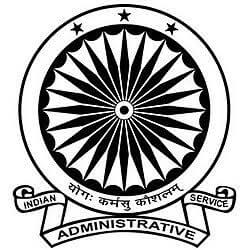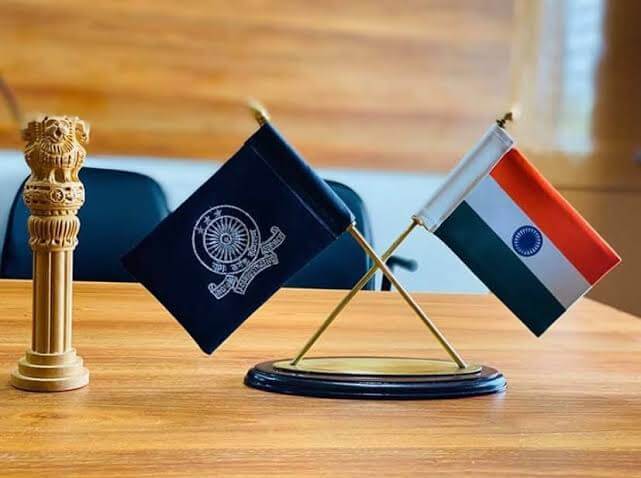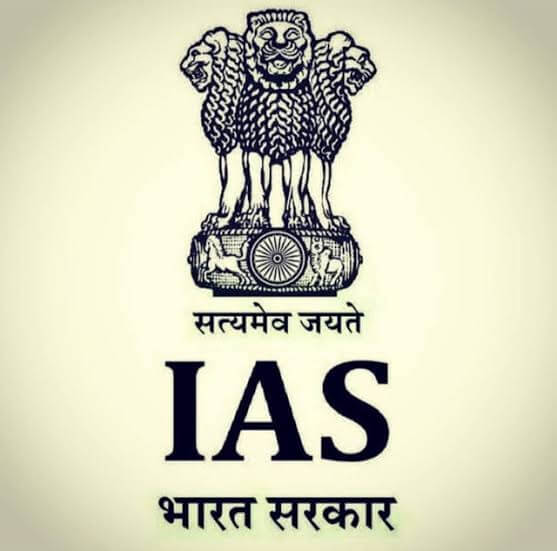What is IAS: Roles and Responsibilities
What is IAS?
IAS stands for Indian Administrative Service. During colonial rule, IAS was known as the Imperial Civil Service (ICS). From the three arms of All India Services, the IAS is one. The Indian Police Service (IPS) and the Indian Forest Service (IFS) are the other two arms of AIS. The IAS is a part of the permanent bureaucracy of the nation and is inseparable from the executive of the Government of India.

At the higher level of income, the officers may lead the government ministries or departments. At this post, the officers are responsible for representing the country at the international level in multilateral and bilateral negotiations. They may also be employed in international organizations such as the international monetary fund, the Asian Infrastructure Investment Bank, the World Bank, the Asian Development Bank, or the United Nations, or its agencies.
HISTORY
The civil services had three divisions during the British raj. These divisions were named covenanted, uncovenanted, and special civil service. In the East India Company's Civil Service (HEICCS), most of the senior and honorable posts were comprised by the British civil servants. In 1858, the Indian Civil Service (ICS) replaced the HEICCS. It was the highest civil service in India during the colonial period of 1858 to 1947.
The decision of the formation of the Indian Administrative Service was taken by the Central Cabinet in 1946 at the Premier's Conference. The decision was based on the IPS and ICS.
The ICS was separated into two dominions of India and Pakistan after the freedom and partition in 1947. Under Article 312(2) in part XIV of the Constitution of India and the All India Service Act 1951, the ICS was replaced by IAS.
RECRUITMENT PROCEDURE
There are three modes or ways on which basis the recruitment in IAS can be done. One can become an IAS officer after passing the civil service examination. The exam is conducted by the union public service commission or UPSC. The officers who clear the exam are called direct recruiters. Along with this mode, some of the officers are selected from the state civil services and some from non-state civil service. They are called the promotees. There ratio of 2:1 between the direct recruiters and promotees. The president of the country completes the process of appointing all of these officers.
Here is a point to be noted that the success rate of passing CSE is less than 0.01 percent; that's why these officers are often called heaven-born. These candidates are sent to the training academy named Lal Bahadur Shastri National Academy of Administration after the completion of the selection process. The academy is located in Mussoorie, Uttarakhand.

ELIGIBILITY CRITERIA
Some of the eligibility requirements for being an IAS officer is:
- Nationality: The candidate must be a citizen of India.
- Educational Qualification: The candidate must have completed graduation in any field from a university that is recognized by the UGC.
- Age Limit: The candidate's age must be at least 21 years and at most 32 years. This limit varies from category to category.
- Number of Attempts: The number ofmaximum attempts for a general candidate is 6, for an OBC candidate is 9, for an SC/ST candidate is unlimited, and for a physically handicapped is also 9.
ROLES AND RESPONSIBILITIES OF AN IAS OFFICER
For performing the high pressure of the job, a candidate must be mentally fit and healthy. There are many responsibilities that are performed by an IAS officer. Some of them are given as follows:
- The IAS officers handle all the daily governmental processing and administration.
- They maintain the law and order and function as an official of court in matters of revenue and crime; this is done to collect revenue.
- At the district level, an IAS is responsible for handling all the district affairs. These affairs also include the implementation of developmental programs.
- A District Officer's post is the highest post at the district level. These officers are also known as District Magistrate, Deputy Commissioner, or District Collector.
- At the state level, they may also be appointed for the post of the Heads of Departments, the state secretariat, or in Public Sector Undertakings.
- Based on the seniority, the officers serve as cabinet secretary, additional secretary, joint secretary, deputy secretary, undersecretary, and directors. These are the highest positions of the IAS officers.
- At the central level, they also formulate and implement the government policies related to finance, commerce, etc., after consulting with the minister in charge of a specific department or a ministry.
- While on duty, an IAS officer is solely answerable to the parliament and state legislature if any violation of rules or illegal activity occurs.

The officer also gives their valuable inputs by serving as a joint secretary and deputy secretary during policy and decision making.
MAJOR CONCERNS
Some of the major concern of IAS are as follows:
- Shortage of Officers: There are just 1700 IAS officers in the country as per a report of 2017. Despite this small number of officers, the government refused to increase the country's annual recruitment of IAS officers. The decision was taken to avoid impacting the overall structure of the service and the career progression of the existing officers.
- Lateral Entry: Many media personalities, retired IAS officers, and academics have been argued in favor of lateral entry into IAS.This argument was done to inject fresh blood into the service so that the bureaucracy can be refresh and alternative perspectives can bring. A counter-argument on this has been put forward, which concluded that corruption and cronyism could manipulate the lateral entry process, and the managerial performance or accountability could not be improved by it.
It has also been argued that because of the creation of synergy between the big businesses and the government, the lateral entry could also comprise government integrity and could also be responsible for making the bureaucracy weak. So finally, the union government decided to rule out the lateral entry into the IAS.
- Political Influence: The interference of many local political leaders with IAS officers are very common in many places in the country. They also exerted pressure on the officers by their frequent transfers, suspension, beating them, and in some extreme cases, they also killed them.
- Corruption: As per some reports, it is found that IAS is a significant contributor to crony capitalism in the country. From 2014 to 2017, ten officers had been demanded to resigned, one was prematurely retired from services, eight suffered a cut in remuneration, and a further five had their pension cut. The information was given by the Department of Personnel and Training through a report. This department is part of the Ministry of Personnel, Public Grievances, and Pensions. In 2020, the CBI arrested two district magistrates because of their connection with an illegal arms license distribution scandal in Jammu and Kashmir that came into the eyes of the department after an investigation.
- Abandonment of Service: As per a report of June 2015 of The Telegraph, twelve IAS officers had gone missing and were not found or reported to their allocated cadre of either union or state government. It was believed that they were working in MNCs in foreign countries at a high salary. Later, due to prolonged absence from service, three of the twelve officers were terminated from the service.
FREQUENTLY ASKED QUESTIONS
Q. How much salary does an IAS officer get?
Ans. The basic salary of an IAS officer is Rs. 56,100 per month, which can increase up to Rs. 2,50,000 per month.
Q. Who does decide the salary of an IAS officer?
Ans. The union government of India is responsible for deciding the salary of an IAS officer, but it is given from the funds of the state government.
Q. Which is the best degree for IAS?
Ans. To become an IAS, one can pursue graduation in economics, sociology, political science, etc., because these are the optional subjects in UPSC exams.
Q. Who is more powerful, IAS or IPS?
Ans. An IAS has more power and responsibilities than an IPS. An IPS has the responsibility of his department only, while an IAS has the responsibility of all the departments of districts.
Q. Who is the head of civil services in India at present?
Ans. The present cabinet secretary of India is Rajiv Gauba.
Q. What is the motto of IAS?
Ans. The motto of IAS is “Yoga implies Excellence at Work”.